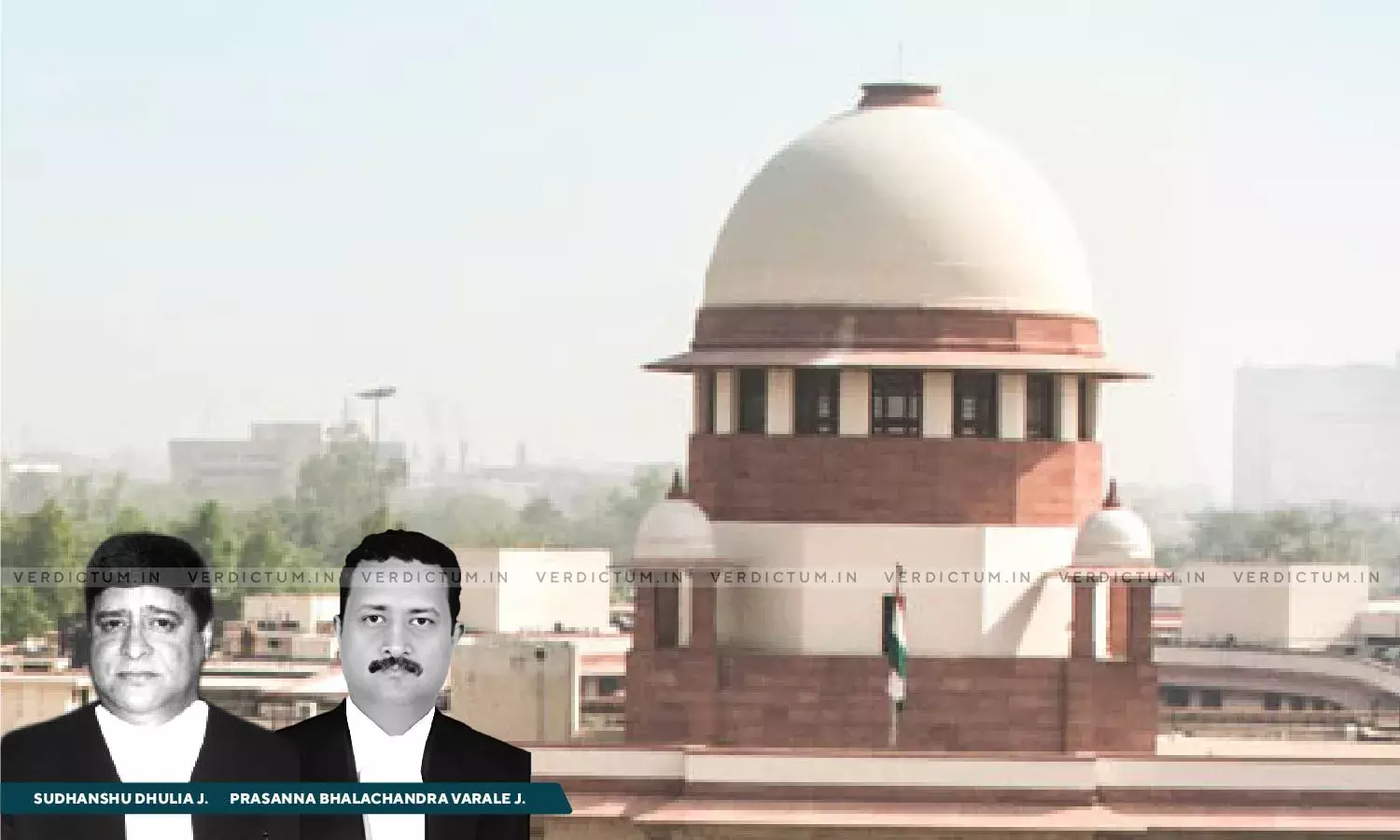Prior Sanction U/S 19 Prevention Of Corruption Act Required Before Taking Cognizance Against Public Servant On An Application U/S 319 CrPC: SC
The Supreme Court observed that the Courts cannot take cognizance against any public servant for offences committed under Sections 7,11,13 & 15 of the Prevention of Corruption Act, 1988 even on an application under section 319 of the CrPC, without complying with the requirements of sanction under Section 19 of the Act.
The Court was hearing an appeal by the State of Punjab against the judgment of the High Court which set aside the trial Court order which had summoned respondent under Section 319 of CrPC to face the trial for the offences under Section 7 read with Section 13(2) of the Prevention of Corruption Act, 1988.
The bench of Justice Sudhanshu Dhulia and Justice Prasanna B. Varale observed, “It is a well settled position of law that courts cannot take cognizance against any public servant for offences committed under Sections 7,11,13 & 15 of the P.C. Act, even on an application under section 319 of the CrPC, without first following the requirements of Section 19 of the P.C Act... Here, the correct procedure should have been for the prosecution to obtain sanction under Section 19 of the P.C Act from the appropriate Government, before formally moving an application before the Court under Section 319 of CrPC. In fact, the Trial Court too should have insisted on the prior sanction, which it did not. In absence of the sanction the entire procedure remains flawed.”
Brief Facts-
An FIR was lodged against the respondent and one another under the Prevention of Corruption Act for accepting bribes. The other person involved was caught and charged, and the respondent was arrested but not initially named. During the trial, the complainant testified that the respondent had demanded the bribe. The trial Court summoned the respondent under Section 319 of the CrPC, but the High Court later set aside the order due to the lack of sanction under Section 19 of the Prevention of Corruption Act. Hence, this appeal.
The Court noted that Section 19 of the P.C. Act puts a bar on Courts to take cognizance of an offence under Sections 7, 11, 13 and 15, without the previous sanction of the State Government, Central Government or the competent authority, as the case may be.
The Court mentioned the decision of the Dilawar Singh v. Parvinder Singh, [(2005) 12 SCC 709], where the SC while explaining the provisions of Section 19 of the P.C Act and also the provisions under Section 319 Cr. PC. observed, “…the provisions of Section 19 of the Act will have an overriding effect over the general provisions contained in Section 190 or 319 CrPC. A Special Judge while trying an offence under the Prevention of Corruption Act, 1988, cannot summon another person and proceed against him in the purported exercise of power under Section 319 CrPC if no sanction has been granted by the appropriate authority for prosecution of such a person as the existence of a sanction is sine qua non for taking cognizance of the offence qua that person.”
The Court observed, “The words and phrases used in Section 19(1) of the P.C Act itself make it evident that the provision is mandatory in nature.”
The Court said that the correct procedure should have been for the prosecution to obtain sanction under Section 19 of the P.C. Act from the appropriate Government, before formally moving an application before the Court under Section 319 of CrPC.
“In fact, the Trial Court too should have insisted on the prior sanction, which it did not.. in the absence of the sanction the entire procedure remains flawed.”, the Court added.
Accordingly, the Court agreed with the decision of the High Court and dismissed the appeal.












